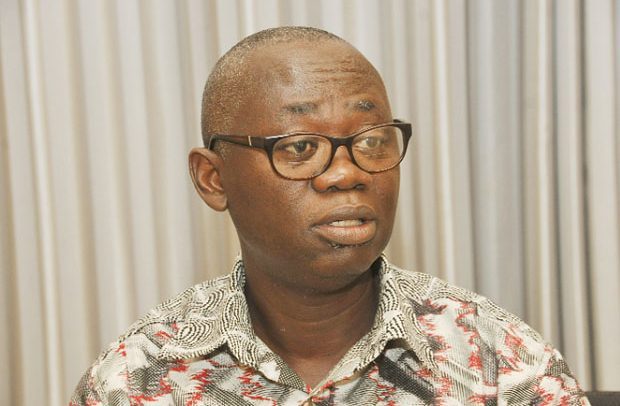Professor Kwasi Opoku-Amankwa
The Ghana Education Service (GES), has debunked claims that pre-tertiary teachers are working more hours than they are required for which they want to embark on an industrial action.
Addressing a press conference in Accra, Director-General of the GES, Professor Kwasi Opoku-Amankwa, said the various teacher unions were engaged and they agreed to the modalities and contact hours before the implementation of the new teaching calendar.
“I want to assure you that at the time that we were dpromotions, allorawing the calendar when Covid-19 broke out, we had extensive discussions with stakeholders, and they were key stakeholders in those discussions, and we agreed on the modalities and contact hours, so they can’t be doing more,” he said.
The unions; the Ghana National Association of Teachers (GNAT), the National Association of Graduate Teachers (NAGRAT), and the Coalition of Concerned Teachers (CCT) recently expressed their displeasure over what they claim are inadequate teaching and learning resources, contact and working hours and gave the government by the end of September to address their concerns.
But the GES maintains there is no basis for their action and asked the unions to come to the negotiation table to get their grievances addressed.
Procurement Of Past Questions
Explaining the position of the GES on the procurement of past questions and office stationery at a cost of almost GHS34.5 million which generated a lot of controversies, Dr. Opoku-Amankwa said the move is not a misplaced priority.
“It is not a misplaced priority. If we were not doing this in the past due to limited resources, it does not mean going forward we shouldn’t. If we decide to make the school system churn out misfits, it will come back to haunt us,” he stated.
He further indicated that the procurement of the past questions in particular was very necessary to the successful outcome of the students’ final exams.
“We can’t say that preparing students to perform well in examinations is bad. All over the world, there are three things that are done in schools. They are curriculum, instructions, and assessments. When we are drawing the programs, we usually begin by assessing them, which helps us to design the kind of curriculum that we want. We go to school not to fail, so let’s get it right. At all costs, it is the responsibility of GES to ensure that people pass and pass well. Our ultimate is to have 100%,” he explained.
Dr. Opoku-Amankwa, also addressed issues of allowances, teaching and learning materials and promotion of teachers under the GES at the press conference.
By Jamila Akweley Okertchiri


